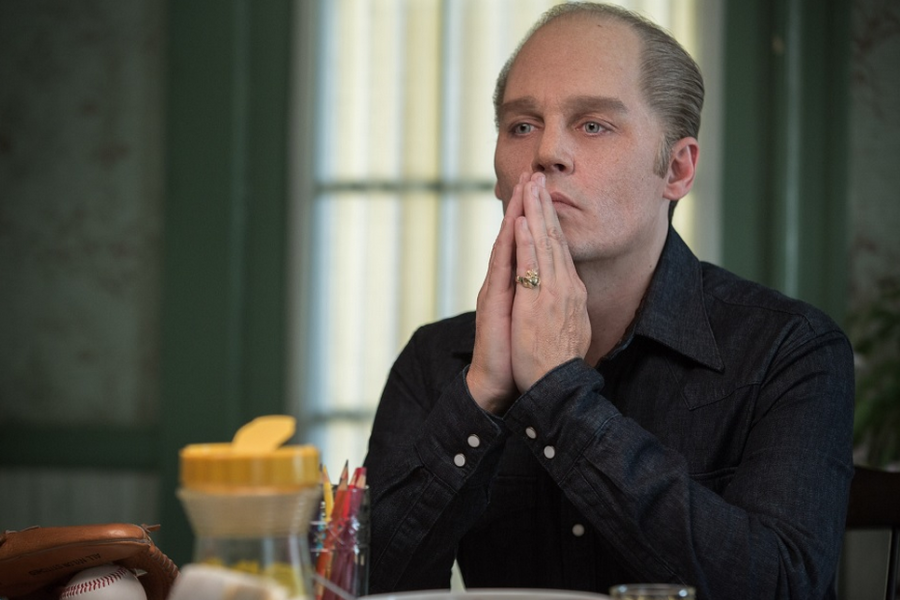Black Mass is Bittersweet
The greatest element of Scott Cooper’s Black Mass is, no doubt, the performances by Johnny Depp, Joel Edgerton, and Benedict Cumberbatch, who play three leading players on and off the streets of Boston in the 1970s-90s. Depp plays James “Whitey” Bulger, leader of the Winter Hill Gang, and the most notorious criminal kingpin in Bostonian history. Edgerton plays John Connolly, an FBI agent blinded by his loyalty to Bulger, his long time childhood friend. Cumberbatch plays William “Billy” Bulger, an influential Massachusetts senator and brother of Whitey. The three absolutely animate their characters, giving them life and convincing accents.
But the performances don’t save Black Mass from tumbling into the ocean after flying too close to the sun. It is no coincidence that it’s been released the weekend of the 25th anniversary of the release of Martin Scorsese’s Goodfellas, the most iconic gangster film since The Godfather. I won’t hesitate to say that Black Mass has no chance of ever being as revered and remembered as its subgenre’s two biggest American trailblazers. Frankly, I find it a little bit disrespectful that the producers would dare release it on this occasion, unless they really thought it would go down in history as the third shy of perfect American gangster film (which I doubt). Show some respect!
I’m not saying I didn’t like Black Mass. It’s not a bad film. If we isolate it from Goodfellas and The Godfather, it’s actually quite good. The true story behind it is compelling, and the film does a fine job recreating Boston in the 70s-90s.
It’s no surprise that Depp and Cumberbatch become their characters with flying colors (and kudos to Benedict Cumberbatch for forging such a convincing accent), making the real winner Joel Edgerton. I didn’t know he existed before Black Mass, but I do now. He presents a character that challenges the audience with an intense moral dilemma, does his loyalty to his dear friend justify his crookedness as an FBI agent?
The performance that might allow Black Mass to stay relevant in our memories, though, is Depp’s, which should come as no surprise. With his slicked back white hair, piercing icy blue eyes, decayed black tooth, blue jeans and leather jacket, Depp does an indescribable job illustrating and becoming his monster, Whitey Bulger, and adding yet another character to the collection of those he’s brought to life, such as Jack Sparrow, Edward Scissorhands, Sweeney Todd and Gilbert Grape. The Bulger he inspirits is extremely unpredictable and terribly pained by the loss of his 10-year-old son.
The theme of loyalty runs consistently throughout the film. The very first scene depicts one of Bulger’s henchmen testifying against him in the future, who enunciates to his interrogator that he is “not a rat.” To rise to fame and become the biggest crime lord in Boston, Bulger camouflages as an informant to have the FBI fight his turf wars for him. This is all made possible due to the pure loyalty from his friend and man on the inside John Connolly. While the plot can be slow at times, Cooper doesn’t fail to keep your eyes drawn to the screen.
My final verdict is this: Black Mass is worth your time and you will be more than pleased by the performances. But don’t be fooled, it is not the next Goodfellas, which is worth checking out if you’ve never seen it. It can be streamed on Netflix in various countries if you have google chrome Hola Extension, and will be playing on the sundance network a few times throughout this next week. It’s bittersweet, really. Black Mass is decent, but because I hold the gangster sub-genre in such high regard, its quality doesn’t satisfy me.


